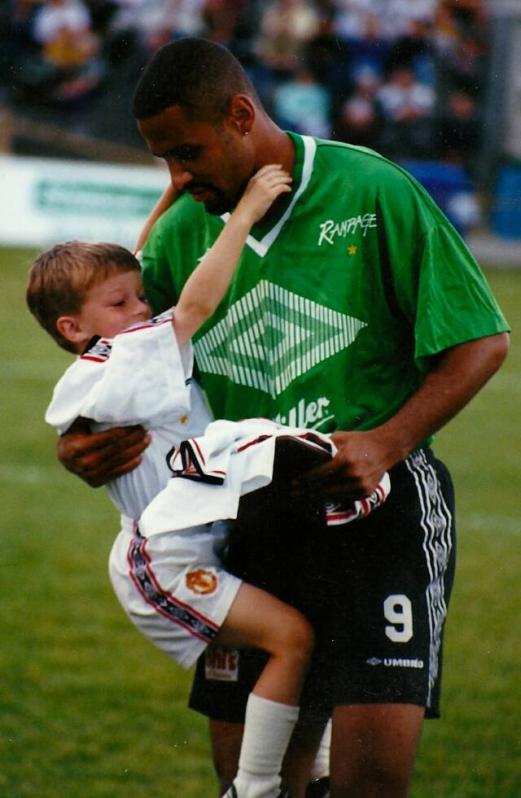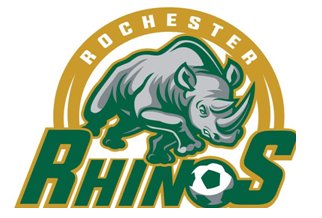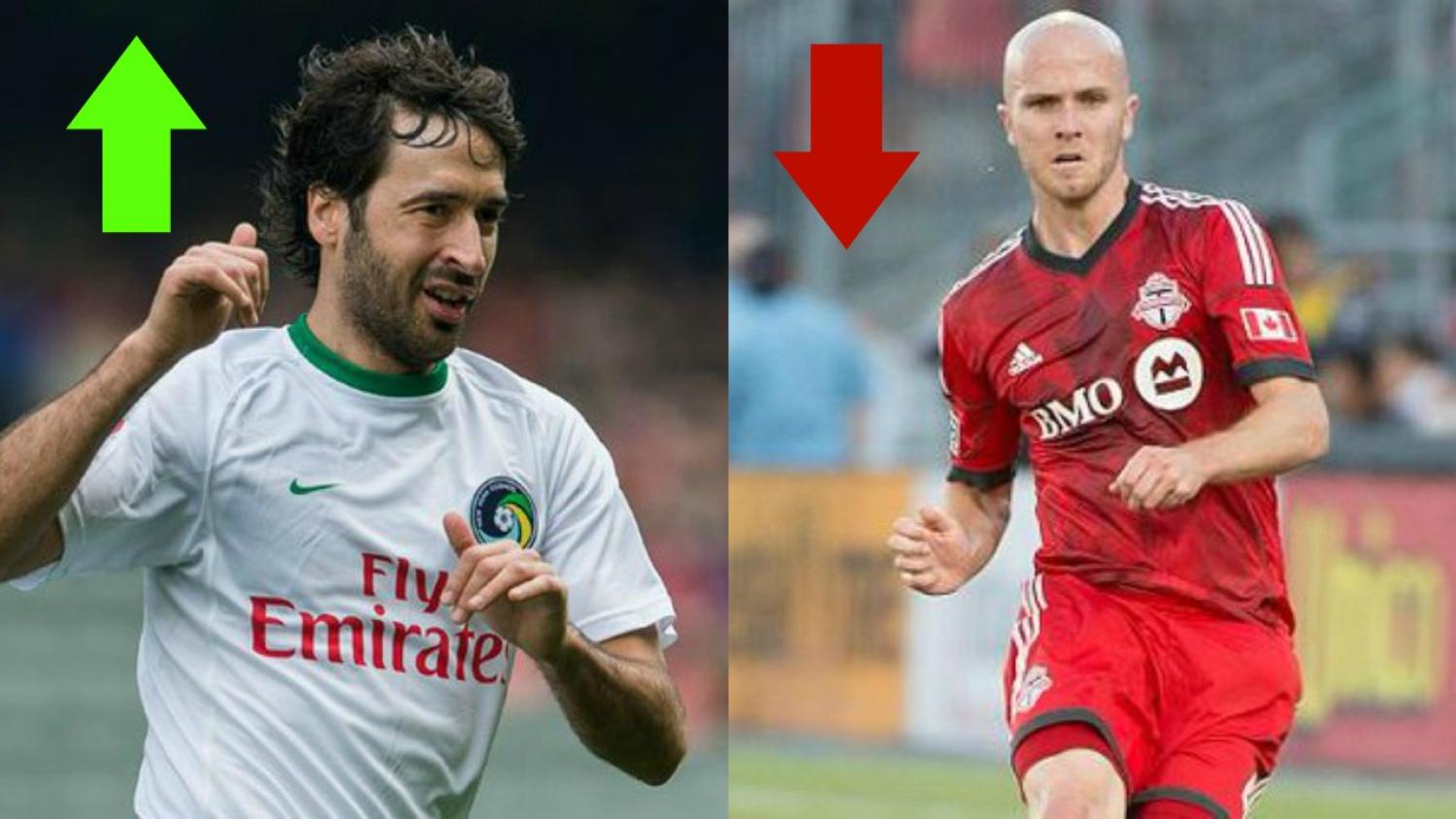I recently wrote about my newfound love for Mexico’s Liga MX and how MLS could be so much better if it took some ideas from its neighbor to the south. One of the key differences is that Mexico uses a system of promotion and relegation, albeit a somewhat complicated one, while the United States still refuses to do so.
With that in mind, we thought it would be cool to see which teams would have been promoted to and relegated from MLS since the league’s birth in 1996 using Mexico’s current formula.
Before we reveal which teams would have gained promotion to MLS from America’s second tier (once known as the A-League, then the USISL, then the USL First Division, then USSF Division 2 Professional League, then NASL and now both NASL and USL) and who would have suffered the disgrace of relegation, a quick note about how Mexico’s system works.
Promotion is pretty straightforward. Either win both the Apertura and Clausura tournaments in the second division or win the promotion playoff final. Relegation from Liga MX is a bit more complicated. A points per game average is taken from a club’s three most recent top flight seasons or the last one or two seasons in the case of newly promoted teams. Whichever team has the lowest points average gets the axe.
Now it’s time to see what promotion and relegation would have really looked like in American soccer going back to the heady days of 1996.
Promotion and Relegation in MLS using the Liga MX Formula
1996
Promoted: Seattle Sounders (First promotion)
Relegated: Colorado Rapids (Only relegation)
Yes, it’s the same Seattle Sounders that you know today, just without the neon jerseys or Xbox sponsorship. Back in the day, 1996 to be exact, the Sounders were champions of the short-lived A-League and would have earned a spot in MLS. Meanwhile, the Colorado Rapids would have been the first American club to suffer the embarrassment of relegation in the top flight’s inaugural season.
1997

The Milwaukee Rampage should be America's team. Photo: @Sannehfdn | Twitter
Promoted: Milwaukee Rampage (First promotion)
Relegated: San Jose Clash (First relegation)
The A-League’s reign as America’s second division was short-lived. The USISL became America’s second division in 1997 and the Milwaukee Rampage were crowned champions and probably celebrated with beer and cheese curds. The San Jose Clash, well, they stunk.
1998
Promoted: Rochester Raging Rhinos (First promotion)
Relegated: New England Revolution (Only relegation)
The USL was given second tier status in 1998, replacing the USISL probably because it was a mouthful. The Rochester Raging Rhinos, who boast an incredible team name, won the league while the New England Revolution couldn’t climb out of the cellar of 10-team MLS.
1999
Promoted: Minnesota Thunder (First promotion)
Relegated: New York/New Jersey Metrostars (Only relegation)
2017 is not the first year that Minnesota has sported a professional soccer team, although they have gone through several name changes as you will see. The Thunder won the USL, meanwhile, the infamy of relegation was bestowed upon the New York/New Jersey Metrostars in 1999. Apparently the more states you included in your team name does not translate to more success on the pitch.
2000
Promoted: Rochester Raging Rhinos (Second promotion)
Relegated: San Jose Earthquakes (Second relegation)
Here come the Raging Rhinos again. Surviving the Y2K scare (if you don’t remember what that was, Google it) and earning promotion. San Jose dropped the “Clash” and opted for the much more disastrous “Earthquakes” and were justly relegated.
2001

Arguably the best team in America. Photo: @FoodlinkNY | Twitter
Promoted: Rochester Raging Rhinos (Third promotion)
Relegated: Tampa Bay Mutiny (Only relegation) / New England Revolution (Only relegation)
Are there many rhinos in the Rochester area? If so, why are they raging so hard? On the MLS side my calculations told me there was an actual tie between the Tampa Bay Mutiny and New England Revolution for which team would be relegated. Conveniently, the Mutiny went out of business after the 2001 season, so they shall be relegated for the sake of our records. Your welcome, New England.
2002
Promoted: Milwaukee Rampage (Second promotion)
Relegated: DC United (First relegation)
The Rampage did it again and sausages ran through the streets of Milwaukee in celebration. DC United would have suffered their first relegation. It wouldn’t be their last.
2003
Promoted: Charleston Battery (Only promotion)
Relegated: DC United (Second relegation)
The Charleston Battery earned promotion from the USL in 2003. I think they have a really underrated name. DC United would have been relegated.
Fun Fact: the Battery and DC United are actually rivals and when they do happen to play against each other, it’s known as the “Coffee Pot Cup”. Who knew?
2004
Promoted: Montreal Impact (First promotion)
Relegated: Dallas Burn (Only relegation)
I guess Montreal was good before they ever had Didier Drogba. They are the first Canadian side to earn promotion. The Dallas Burn lose their top flight status, and eventually, their nickname.
2005
Promoted: Seattle Sounders (Second promotion)
Relegated: Chivas USA (First relegation)
Welcome to America, Chivas! I think everyone can agree that the Chivas USA experiment was a disaster. The disaster began in 2005 and Chivas would have been relegated in their first season. We should have known then! Seattle Sounders were reppin’ the Pacific Northwest in USL with aplomb.
2006
Promoted: Vancouver Whitecaps (First promotion)
Relegated: Real Salt Lake (Only relegation)
But Seattle isn’t the only team in the Pacific Northwest. The Vancouver Whitecaps would have earned promotion in 2006. Meanwhile, the newly created Real Salt Lake would have been relegated in their first season. Probably as punishment for using the moniker Real.
2007
Promoted: Seattle Sounders (Third promotion)
Relegated: Toronto FC (First relegation)
The Sounders would have done it again in 2007 - you can see why so many in Seattle wanted to be a part of MLS. Meanwhile, MLS new boys Toronto FC were downright dreadful and would have gotten the axe. Buckle up, Toronto fans...
2008
Promoted: Vancouver Whitecaps (Second promotion)
Relegated: Toronto FC (Second relegation)
In 2007, Vancouver showed what was right with Canadian soccer. Toronto FC continued to show what was wrong.
2009
Promoted: Montreal Impact (Second promotion)
Relegated: Toronto FC (Third relegation)
Montreal fans would love to shove this in the face of their Toronto counterparts. It will be a long time before Sebastian Giovinco, Jozy Altidore and Michael Bradley show up to help.
2010
Promoted: Puerto Rico Islanders (Only promotion)
Relegated: Philadelphia Union (Only relegation)
Imagine this: the Puerto Rico Islanders are actually promoted to MLS in 2010. They bask in the glory of big television contracts and money and stars flow to the island. After writing his hit musical Hamilton, Puerto Rican Lin-Manuel Miranda becomes majority owner of the club, bringing another round of money and stars to the American protectorate and the island never faces bankruptcy.
Oh, hello, Philadelphia. Welcome to MLS. You would have been relegated.
2011
Promoted: Minnesota Stars (Second promotion)
Relegated: Vancouver Whitecaps (Only relegation)
The NASL replaces the USL as America’s second tier of soccer. The Minnesota Stars, not Thunder and not yet United FC, gain promotion. The Vancouver Whitecaps, who really did get bumped up to the big time (yay!) would have been relegated (boo!).
2012
Promoted: Tampa Bay Rowdies (Only promotion)
Relegated: Toronto FC (Fourth relegation)
Soccer’s comeback in Florida? Eat your heart out, David Beckham. The Rowdies would have been wildin’ all the way to MLS. Toronto FC still hadn’t figured things out.
2013
Promoted: New York Cosmos (First promotion)
Relegated: Toronto FC (Fifth relegation)
The New York Cosmos would have been promoted in 2013 to become the New York area’s second top flight team. Toronto...still bad. After reading this, Toronto fans better cherish every minute they have with Giovinco, Altidore, and Bradley!
2014
Promoted: San Antonio Scorpions (Only promotion)
Relegated: Chivas USA (Second relegation)
The Chivas USA experiment finally comes to an end in 2014. The team would have been relegated and actually went out of business after the season anyway. So that worked out. The San Antonio Scorpions would have earned promotion, becoming the third MLS team in the Lone Star state. I imagine if your name is the Scorpions you have to have some cool jerseys. Just saying.
2015
Promoted: New York Cosmos (Second promotion)
Relegated: NYCFC (Only relegation)
Could New York have handled three MLS teams? Manchester City gave birth to NYCFC in 2015 and even Frank Lampard took as long as he could before joining that train wreck of a team.
2016
Promoted: New York Cosmos (Third promotion)
Relegated: Chicago Fire (Only relegation)
The Cosmos have established themselves as one of the premier clubs in NASL. Meanwhile, 2016 was the culmination of a dreadful stretch in Chicago Fire history and the men in red would have been hosed down to the second division. How the Fire convinced Bastian Schweinsteiger to play in Bridgeview, Illinois I’ll never know.
Key findings
The Rochester Rhinos and New York Cosmos, both having won promotion on three occasions, can be aggrieved with the whole process. The Milwaukee Rampage could also be in a totally different place now with two promotions.
However, Seattle, Minnesota, Montreal and Vancouver have been rightly awarded MLS spots for their trouble.
At the MLS level, no one’s benefitted more from the absence of relegation than Toronto FC — they’ve gone down five times. San Jose, New England and DC United have also been fortunate with two relegations apiece, while Chivas USA has been mercifully put down.
So there you have it. An alternative history of American soccer with promotion and relegation. One day it might just be a reality. Maybe.





